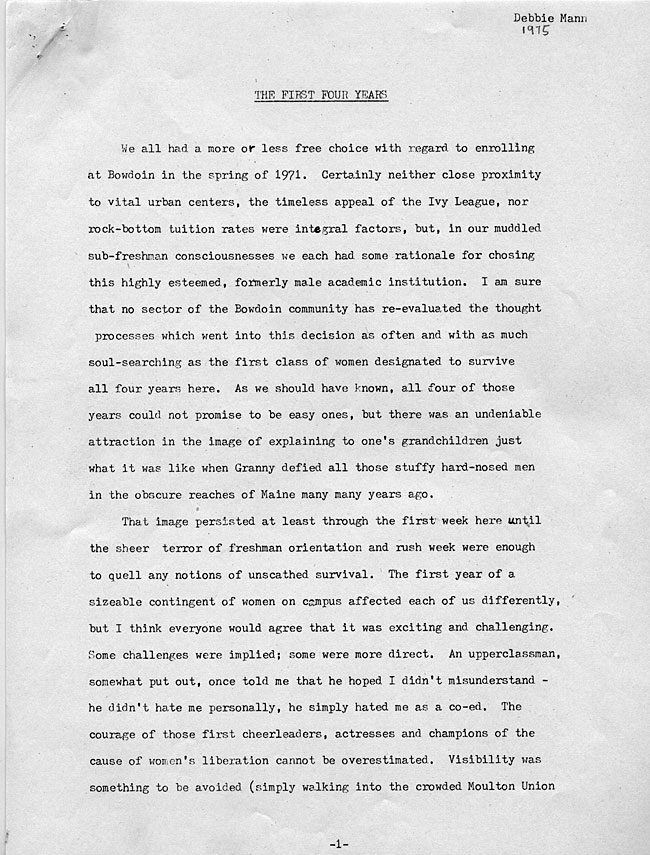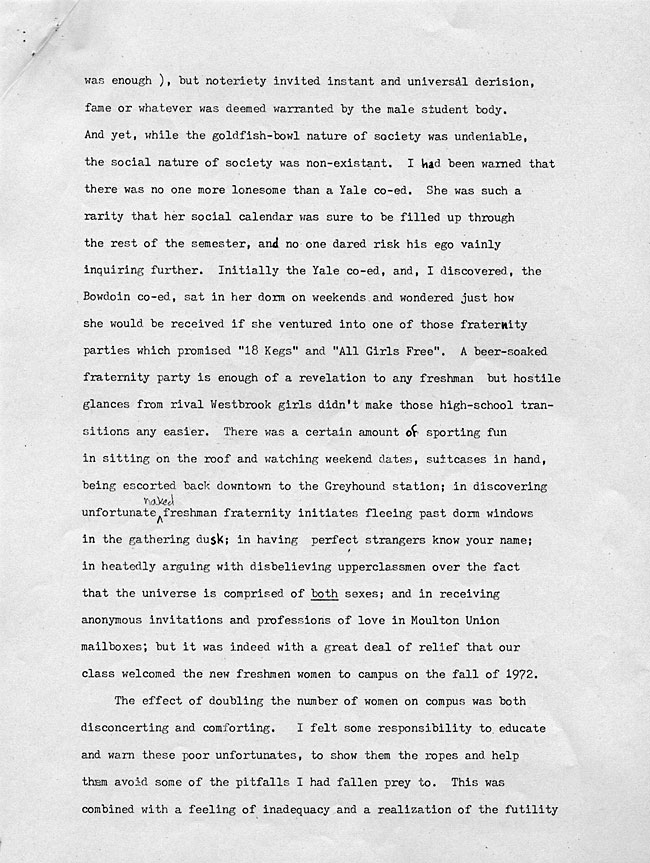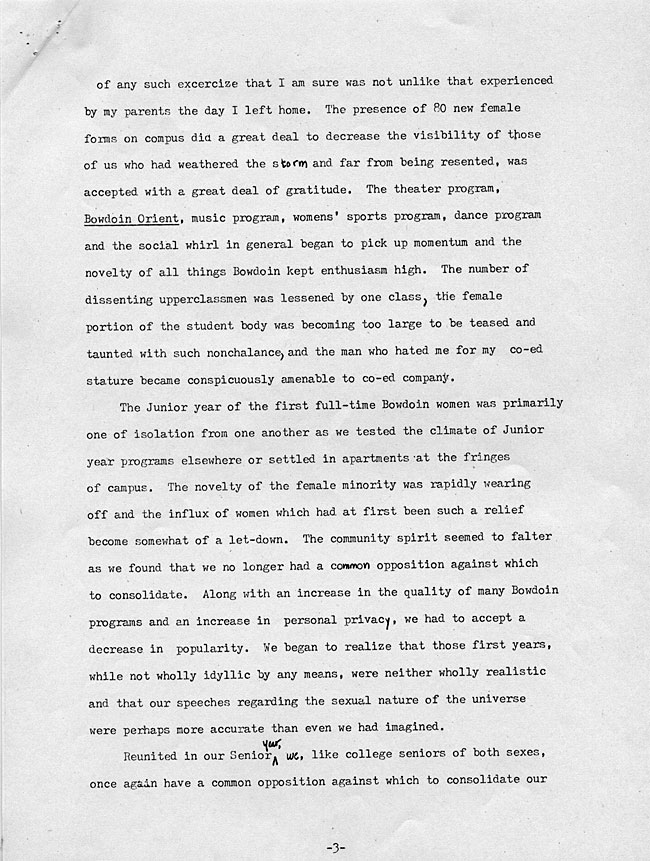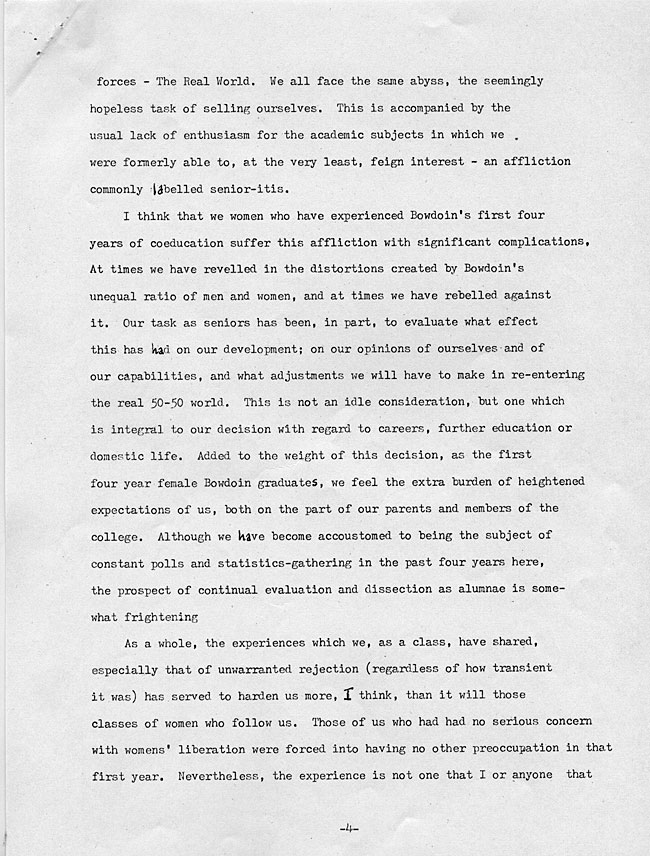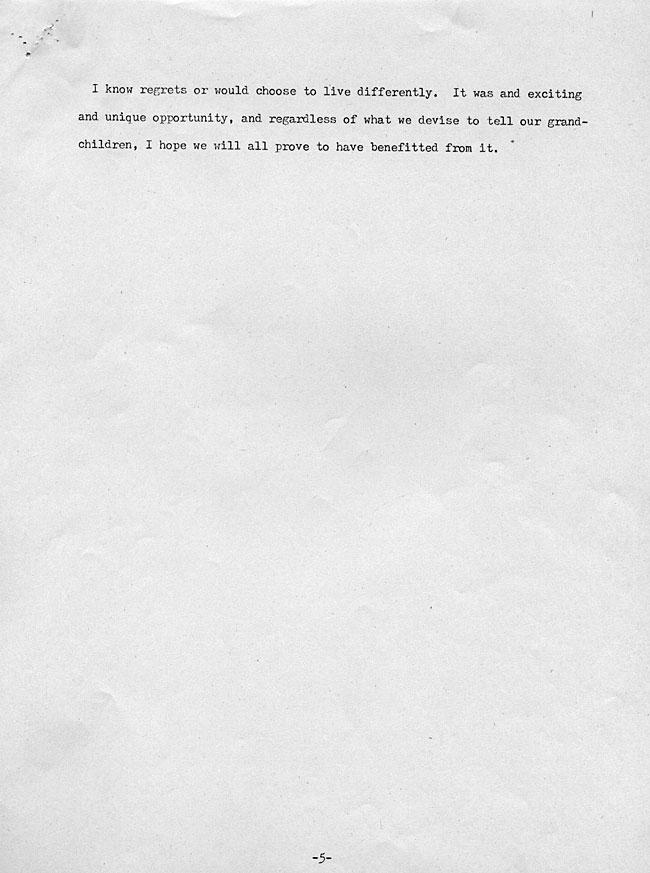First Female Graduate Delivers Commencement Address
In her bold and eloquent 1971 commencement address, Bowdoin’s first female graduate, Susan Jacobson, assuages some common concerns about coeducation at Bowdoin and proposes insightful recommendations for the future of the college as a successfully coeducational institution (Document AK, 22).
Making a point to contextualize Bowdoin’s efforts not only in the contemporary world but also within history, Jacobson points to Bowdoin’s responsibility to seek out an international student body. Noting that other nations had long ago realized their “woman power,” Jacobson hopes that the United States – and hopefully Bowdoin itself – will “[…] someday be able to boast of having educated an Indira Ghandi or a Golda Meir.” Jacobson adds that allowing women to study at Bowdoin serves as a meaningful way to honor the many women who worked for and committed themselves to Bowdoin in non-academic ways in the past.
Jacobson is careful to note that the admission of women poses no threat to the preexisting academic and administrative features that make Bowdoin so effective and well respected. With what may be a hint of sarcasm she writes, “So firmly established are these areas that they need not fear any injury by the “weaker sex.”” On the contrary, she says, the presence of women serves to enhance already prestigious academic departments while helping to develop and improve the arts and humanities. She further asserts that, “Many wild speculations as to what the co-eds will be like and much needless worrying stem from a failure to realize that these girls have wants, interests, and aims similar to the male contingent. Instead of viewing these women as invaders from another galaxy, one should and must accept them as a complement to the male student body.”
Jacobson mentions but does not dwell on the adversity that many of these first Bowdoin women faced. She concludes with the hopeful sentence, “From now on [the alma mater] should read “Bowdoin from birth the nurturer of men, and now of women.” Little could she have imagined that in 1994, Anthony Antolini ’63, director of the Bowdoin Chorus, would honor Bowdoin’s bicentennial by officially altering the lyrics of the song to be more gender-inclusive, changing the words “nurturer of men” to “nurturer and friend.”
We were unable to reprint this speech in its entirety. If you would like to read the entire speech, please visit the George J. Mitchell Department of Special Collections and Archives, Bowdoin College
Jacobson, Susan. “Commencement Address,” Class Records, Class of 1971 [1.6.166], Bowdoin College Archives, Brunswick, Maine.
